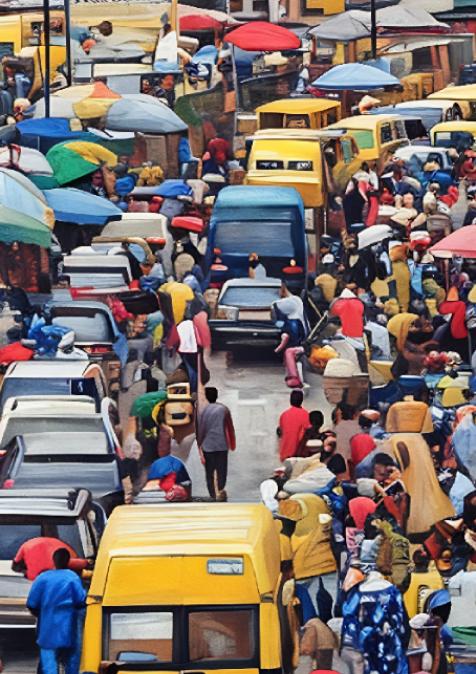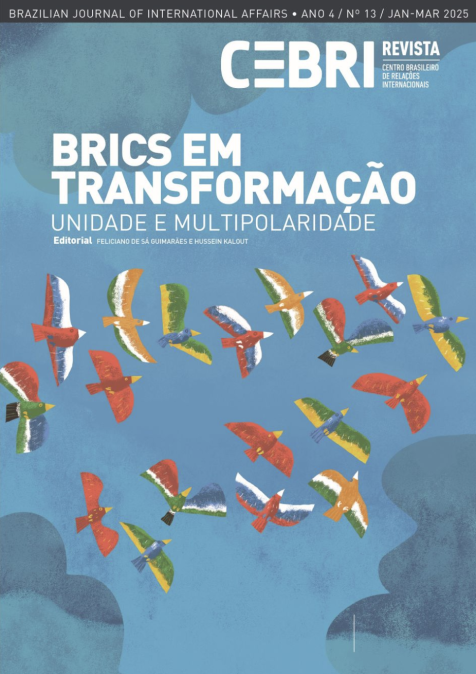Publications /
Opinion
The author of this opinion, Danielle Alakija, is a 2024 alumna of the Atlantic Dialogues Emerging Leaders Program.
Once upon a time—or so the story went—the Global South was cast to the margins of the global development narrative. Assigned a supporting role in someone else’s story, it was exploited for its resources and subdued by the authoritative tone of external narrators. This image, painted in tones of crisis and dependency, continues to echo through textbooks and news cycles.
But stories evolve. And this one is beginning to turn a new page.
The Global South is no longer asking for space in the global narrative—it is claiming it. From Lagos to Mumbai, a counter-story is being told. Not always loud, but increasingly clear: the South is not just part of the story—it is an author in its own right. Still, the question remains: can narrative truly be an effective tool for change? And further, what does the future hold for a Global South fully in command of its collective identity?
Narratives go far beyond words. They shape perception, drive policy, and form the foundation of a burgeoning creative economy, projected to cross the $1 trillion threshold in the coming years. While the Global South is a significant—often unwilling—investor in this creative economy, both through resources and cultural influence, the greatest return is not financial. It is a growing return on identity and ownership.
What is the Global South?
Even the term Global South carries a contentious history. It is more than geography—it is shorthand for histories of colonization, systems of exploitation, and ongoing global imbalances. Geographically, it broadly refers to countries in Africa, Latin America, the Caribbean, Asia, and Oceania—nations often grouped under vague terms like developing or Third World, both of which suggest lack, rather than acknowledging the vast resources that have fuelled centuries of global development.
To understand the label Global South, one must understand the importance of self-determination—the importance of choice, and the respect of that choice. Some advocate for alternatives like the Global Majority, a term that reflects demographic reality and subtly shifts the centre of gravity. Others reject sweeping categories altogether, wary of language that flattens rich diversity into broad generalisation. Is it accurate to group Singapore with Somalia? Is Argentina's path the same as Afghanistan's? Certainly not. But a shared thread remains: these are regions historically subjected to unequal global structures.
It is in questioning the term that its real purpose comes into focus—not as a map, but as a mirror. A reflection of how much of the world sees itself, and how it might choose to redefine that vision.
The Power of Narrative
Narrative is not ornamental. It is infrastructural. It shapes more than stories in books or on screens—it underpins the logic of policy, media, aid, investment, and diplomacy. To control the narrative is to control the agenda.
For decades, the dominant global narrative has cast the Global South as a site of tragedy and need—famines, wars, corruption, coups. These portrayals often omit crucial historical context: colonial extraction, Cold War interference, and economic coercion. The narrative has been incomplete—by design.
Today, that narrative is being challenged.
Across media, art, politics, and academia, a new wave of voices from the Global South is reshaping how these regions are seen—and how they see themselves. From Chimamanda Ngozi Adichie’s warning about “the danger of a single story,” to grassroots digital platforms amplifying local voices, there is a growing recognition that representation is not a luxury—it is a battleground.
The Interweave of the Two
The conversation about the Global South’s role in the world can no longer be separated from the question of narrative sovereignty. It is no longer just about who tells the story—but how it is told, and to what end.
With each act of self-definition, the Global South chips away at imposed narratives. With each resistance to externally prescribed models of development or democracy, a new script is being written—one grounded in cultural, historical, and social realities distinct from the Western experience.
This rewriting is not abstract—it is deeply strategic. When nations shape their own stories, they shape their diplomacy, trade relations, educational systems, and more. Consider how countries like South Korea, Taiwan, and Singapore moved from colonised or war-torn states to economic and technological powerhouses. Their rebranding—through deliberate narrative and policy alignment—transformed global perception and opened new pathways for influence.
This is not mimicry—it is mastery: a conscious shift from being seen to seeing oneself, and acting accordingly.
Cultural Catalysts
In music, cinema, visual art, and fashion, creators from the Global South are asserting narrative control. Nollywood’s rise, K-pop’s global dominance, the explosion of Afrobeat and the worldwide embrace of Asian design all signal a clear shift: the Global South is not asking for entry into the mainstream—it is the mainstream.
Take, for example, Gabriel García Márquez’s One Hundred Years of Solitude. It was not just literature—it was a cultural earthquake. The novel helped define Magical Realism, a genre that blurred the lines between myth and memory, history and invention. It became a tool for Latin American writers to articulate truths that Western realism could not contain.
Stories like these—steeped in regional specificity yet globally resonant—do more than entertain. They intervene. They act as soft power, opening the world’s imagination to entirely different ways of seeing, knowing, and being.
Practical Considerations and Applications
The transformation of narrative power is not just symbolic—it has real-world consequences.
In international development, we are witnessing a shift from paternalistic aid models to frameworks of mutual partnership. Nations are pushing back against donor-driven narratives, asserting ownership over their development agendas. The rise of South-South cooperation—where countries in the Global South collaborate based on shared experiences—is a direct challenge to older, hierarchical models.
Digital media plays a pivotal role in this shift. The decentralisation of content platforms—YouTube, TikTok, podcasts, and independent media—has enabled creators from historically underrepresented backgrounds to bypass traditional gatekeepers. These voices are creating viral moments that influence global discourse in real time.
Education, too, is evolving. Universities across the Global South are investing in homegrown research, publishing in native languages, and reshaping curricula to reflect local realities rather than imported theories. This is about more than pride—it is about precision. A narrative that fits creates policies that work.
A Look to the Future (If We Get It Right)
If narrative is power, then reclaiming it is reclaiming power.
When the Global South writes its own story—through policy, art, economy, and identity—it builds a world less defined by extraction and more by exchange. It offers new models of sustainability, resilience, and justice. It builds bridges where the old system built walls.
This is not about inverting the global order, but expanding it—making space for more voices, more visions, and more versions of what progress can look like.
The pen is no longer in the hands of the few. It is now held by the many—crafting stories rooted not in pity, but in pride; not in deficiency, but in dignity.
And that, perhaps, is the greatest narrative shift of all.








